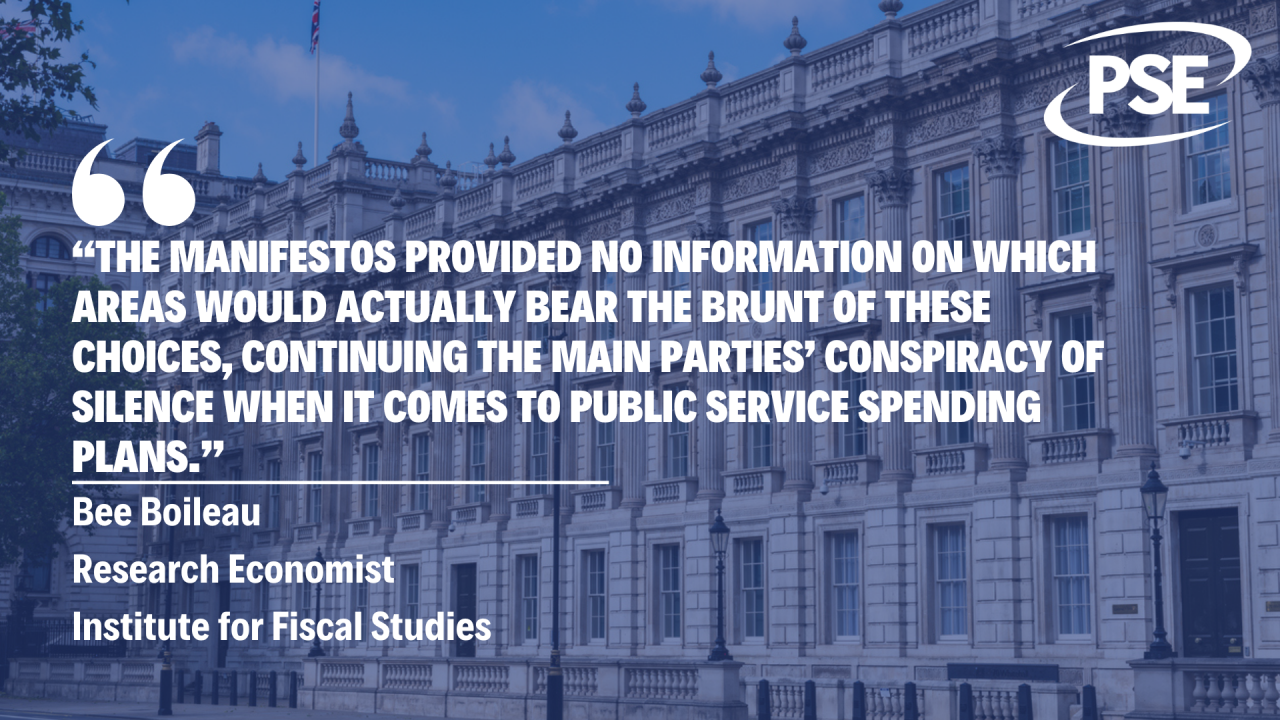A new report from the Institute for Fiscal Studies has outlined how major political party manifestos have steered away from outlining how individual public services will be funded.
Labelled as a ‘conspiracy of silence’ when it comes to plans for public service spending, the lack of baselines for spending has created three issues according to the IFS. The first of these is that it is impossible to evaluate whether public service improvement plans are plausible. An example used within the report is the health and social care budget and the delivery of the NHS Workforce plan, which remains in doubt as different spending paths could leave the gap between promised additional spending anywhere between £1 and £20 billion a year.
The second issue that comes with the ‘silence’ around spending is that it makes it difficult to properly evaluate whether policy costings within manifestos are realistic. Instances such as the Conservative policy of increasing spending on defence, for example, has been touted to cost either £25 or £75 billion through depending on different spending baselines. Without spending baselines for different public services, it is difficult to establish whether policies are being made to look bigger or smaller depending on the political narrative being presented.

The third issue that has been created through the leaving out of justifying public spending is that parties are able to remain quiet on the cuts that could be on the horizon, with unprotected budgets. As this inhibits the ability to create official forecasts, areas such as schools, the NHS, defence, aid and childcare commitments are being left facing real-term spending cuts without any idea where such cuts will be made.
Institute for Fiscal Studies Research Economist, and one of the authors of the report, Bee Boileau, said:
“Both the Conservative Party and the Labour Party have made a lot of their “fully funded” fledges manifestos this campaign. But, in practice, these pledges mean almost nothing for the funding that individual public services might expect in the next parliament. We do not know how total spending will be allocated between public services after next March, and, with a few exceptions, neither manifesto offered much light. The manifestos did tell us that neither party is planning to top up total public service spending by enough to avoid very difficult choices for many public services in the next parliament. But the manifestos provided no information on which areas would actually bear the brunt of these choices, continuing the main parties’ conspiracy of silence when it comes to public service spending plans.”
To ease these challenges, it has been suggested that parties should make their plans for public spending clearer, with future elections potentially bringing changes to broader institutional context.
Image credit: iStock



















